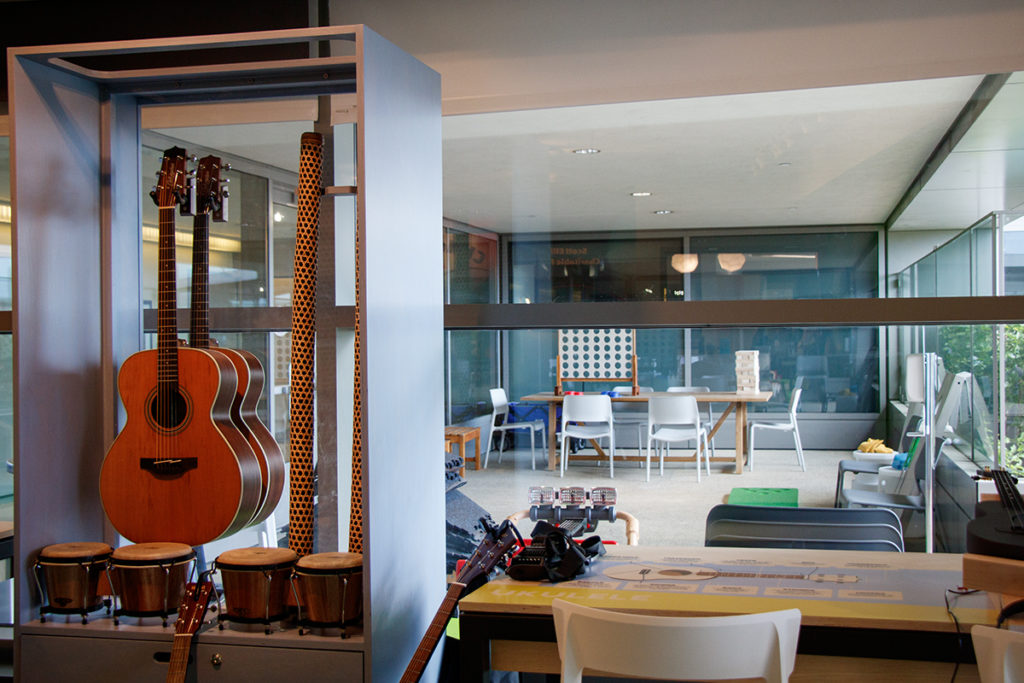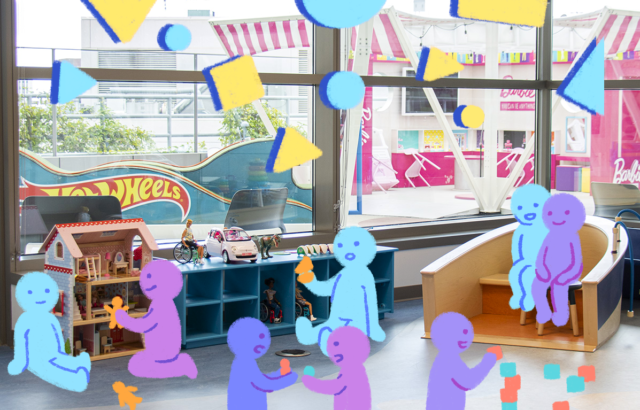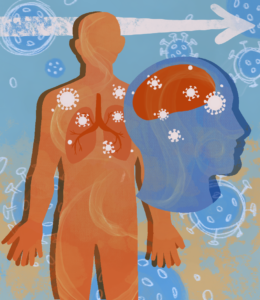During extended hospital stays, children need emotional and mental support in addition to physical treatment, said Dr. Jessica Lloyd, an associate professor of pediatrics at UCLA. Since the onset of the COVID-19 pandemic, hospitals such as UCLA Mattel Children’s Hospital have made efforts to adapt their support systems for patients.
At Mattel Children’s Hospital, doctors, nurses and other specialists work together to care for both patients and their families.
With a large population of critically ill patients, the hospital started as the UCLA Department of Pediatrics in 1950 before being renamed Mattel Children’s Hospital at UCLA in 1998. The hospital was moved to a newly built location in 2008, where it still stands today.
Many children undergo transplants and other procedures at Mattel, said Kelli Carroll, director of the Chase Child Life Program, which is a program that seeks to find resources to help children overcome difficult milestones during the course of hospitalization and treatment.
Carroll, a child life specialist, said she works with the Los Angeles community to bring community partners and volunteers into Mattel to provide activities and special events for patients and their families.
In one instance, before the surge of the omicron COVID-19 variant in LA late last year, the program brought in a family photographer who took photographs as a gift for the patients and their families, she said, adding that it served as a symbol of normal life outside of the hospital.
Mattel medical staff often collaborate to optimize the care for their child patients by meeting both their psychosocial and physical health care needs, Lloyd said.
Jacqueline Euan, a clinical social worker at UCLA Health, said when a patient first comes to the hospital, she completes an intake survey and interviews the patient and their family. During this initial interview, Euan said she works to understand each family’s unique position – financially, socially and culturally.
From there, she determines what health care providers should be aware of when designing treatments and also suggests resources to help families adjust to being away from their child in the hospital, she said. Euan said communicating patients’ medical and social circumstances with the entire health care team ensures patients and their families receive regular updates and care that respects their needs.
For example, in cases when patients face traumatic experiences, particularly after difficult medical procedures, Euan said she refers them to the resident child psychology team for further support.
Natacha Emerson, a child psychologist at Mattel, said when children face medical trauma, she works as a consultant to help physicians understand how to best treat their patients while taking into account their mental states. Through techniques such as providing child patients with choices, such as where they would prefer their blood drawn from, she aims to help them feel empowered when receiving care, added Emerson, who is also an assistant clinical professor of psychiatry and biobehavioral sciences.
Emerson said she also helps parents understand how to share complicated medical information with their children, which in turn can help parents feel more involved in the process of taking care of their children.
Dr. Amanda Kosack, an assistant clinical professor of pediatrics at UCLA, said parents are also a valuable resource for physicians to understand the situations of children with rare conditions.
“I always tell my students, ‘You can learn the most from these families because they know their child’s condition backwards and forwards,’” she said.
During the pandemic, Carroll added that hospital protocols stipulated that only one parent or guardian was allowed to be with the patient at their bedside.
She said it was hard for parents to have a child diagnosed with a chronic disease and have to decide which parent or guardian stayed with the child at the hospital.
“As a parent, you want to be there to hear every word a doctor has to say and you won’t be able to ask your question, and to have to split that up and only have one person here was really stressful,” Carroll said.
Siblings were similarly affected by pandemic guidelines, said Lloyd, who is also a pediatric hospitalist.
In an emailed statement, Lloyd said they once admitted a baby for treatment, but because siblings were not allowed inside because of pandemic restrictions, the family had to take the baby outside of the hospital on monitors with a nurse to see her sibling on their birthday.
Before and during the pandemic, Mattel’s child patients struggled with trauma related to long-term hospital stays.
“When we talk to the family or even the patient, you can kind of see the PTSD because of the prolonged hospitalization,” said Chai-Chih Huang, director of pediatric nursing at UCLA Mattel Children’s Hospital.

(Finn Chitwood/Daily Bruin)
Although the pandemic has been a stressor for patients and their families, Carroll said she and her team have worked to ease some of that stress.
The Chase Child Life Program has certain organizations that help children in hospitals year-round. Once Upon a Room is one organization that provides room decorations for the kids staying at Mattel for long stretches of time, Carroll said.
For Star Wars fans, members of Once Upon a Room buy Star Wars decorations, such as comforters, wall decals, pillows and sheets, to make the child feel more at home while staying at the hospital.
Huang said mental health issues seemingly increased during the pandemic, with more children attempting suicide than previously.
Paul King, president and CEO of Stanford Children’s Health, said in an interview with Becker’s Hospital Review that from January to September 2021, hospital cases related to suicide in those between the ages of five and 17 rose 53% from the same period in 2020.
However, many patients’ mental health seems to have improved as pandemic-related restrictions have been lifted, Huang said.
Still, medical professionals at Mattel recommend that outpatients continue to follow the COVID-19 safety precautions such as masking, social distancing and testing even at this time, Kosack said in an emailed statement.
Regardless of the patient’s situation, Carroll said they host a safe space for children at Mattel to express their thoughts and feelings.
“I think sometimes everybody around the kiddo is trying to say, ‘It’s gonna be okay, it’s gonna be okay, it’s gonna be okay,’” Carroll said. “But it’s not okay right now, and you know what? That’s okay inside this space.”




Comments are closed.